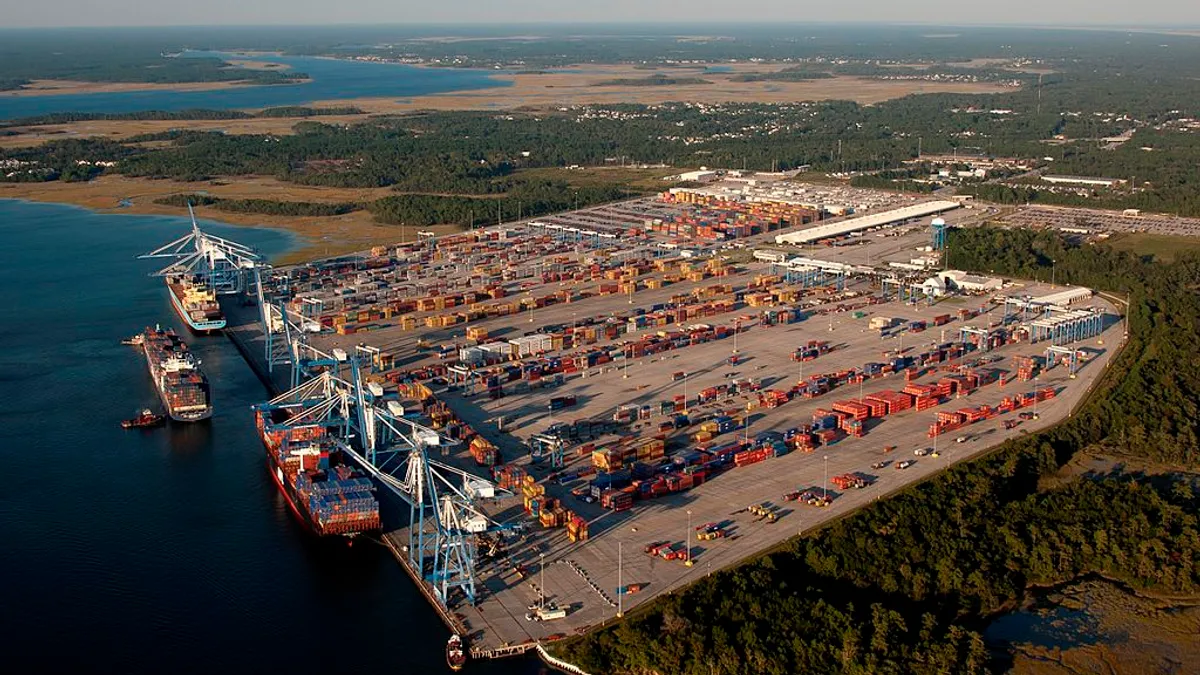Dive Brief:
- The Port of Charleston's Wando Welch Terminal experienced a slowdown and traffic congestion on Friday, as members of the International Longshoremen's Associaiton (ILA) forced truck drivers to submit to visual chassis inspections rather than automated inspections, the Post and Courier reported last week.
- Refusing drivers access to the recently installed cameras for video inspections, the Longshoremen's actions caused significant backups, hours long for some drivers. JOC.com reported Friday the slowdown was short-lived, and the terminal was recovering.
- The union-forced slowdown occurred a day before the South Carolina Ports Authority would test automated inspection technology at a nearby terminal, American Shipper reports. The ILA has previously expressed concerns over job loss due to automation.
Dive Insight:
The ILA's strong opposition to automation is rooted in its fear new technology will lead to job losses, a position the association has made clear to employers in advance of upcoming contract negotiations.
Comparing itself to the steel industry of the past, the ILA recently cited a New York Times article regarding the closing of mills due to automation rather than a failing economy in talks with the United States Maritime Alliance. Union leaders are taking advantage of ports' reliance on longshoremen and recent memories of a longshoremen strike at West Coast ports, which cost the industry millions.
However, port authorities find themselves stuck between a rock and a hard place as larger inbound volumes require better handling technology. Meanwhile, the industry is pushing to expedite port processing to drive greater supply chain efficiencies. For both these issues, automated technology appears to be the solution, except for the ILA's opposition.
Protests and forced slowdowns could become more common as the 2018 deadline for contract renegotiation nears. However, if the ports offer retraining with the certainty of continued employment, the ILA could reconsider its stance. After all, automation seems likely to come sooner rather than later.














